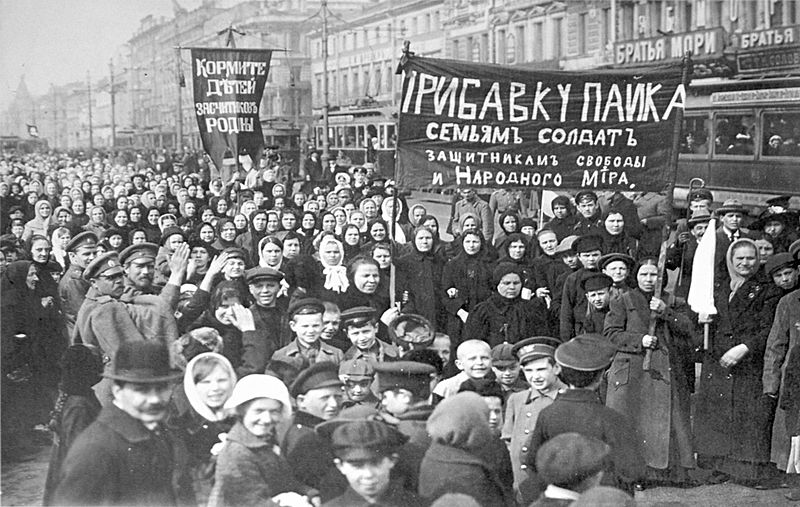100th Anniversary of the February Revolution

The February Revolution began 100 years ago in Petrograd, then the capital of the Russian Empire, modern day St. Petersburg. Bread riots and protests developed into a mass demonstration and industrial strike on March 8, 1917. February 23 in the Julian calendar, which is considered the first day of the Revolution. After about a week of demonstrations and clashes between protesters and police and soldiers of the Petrograd army garrison, who eventually joined to the protesters, the Tsar Nicholas II had abdicated his throne and the Provisional Government was announced.
Even though the immediate cause of the Revolution was economic and social consequences of Russian participation in World War I, the conflict was deeply rooted in unwillingness and inability of Nicholas and his government to reform the Russian society. The February Revolution brought about many rights and freedoms of which Russian citizens had hitherto deprived. On April 2, 1917, the Pale of Settlement, a long-term restriction on Jewish residence in the Russian Empire, was abolished.
In the collective memory, the February Revolution has faded or been mixed with the October Revolution, which happened eight months later and defined the trajectory of the Russian history for the next 70 years. However, the memory of the February Revolution is preserved in several eyewitness testimonies to the Holocaust in the Visual History Archive. Explore the following testimonies where interviewees remember the February Revolution.
Like this article? Get our e-newsletter.
Be the first to learn about new articles and personal stories like the one you've just read.